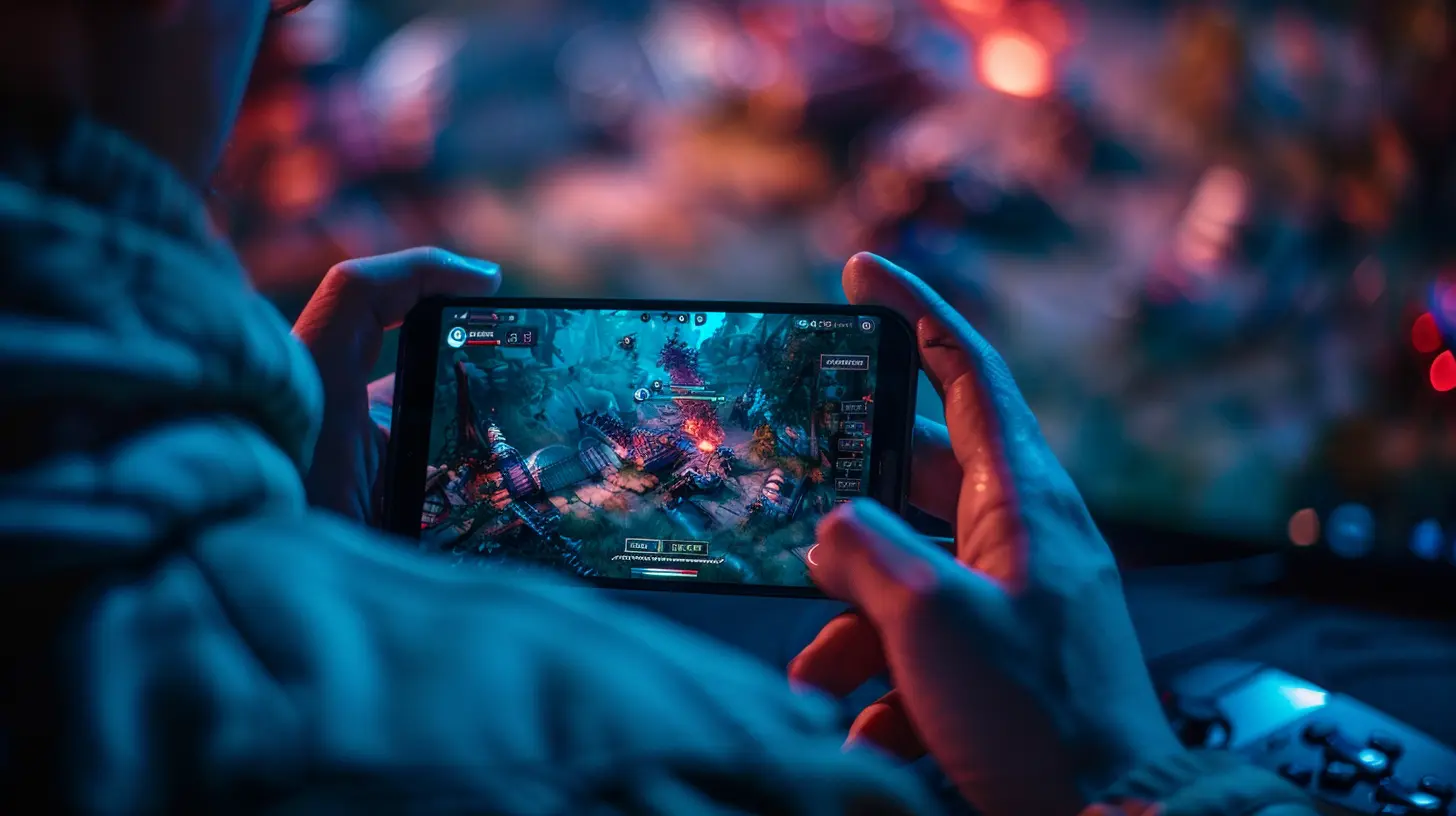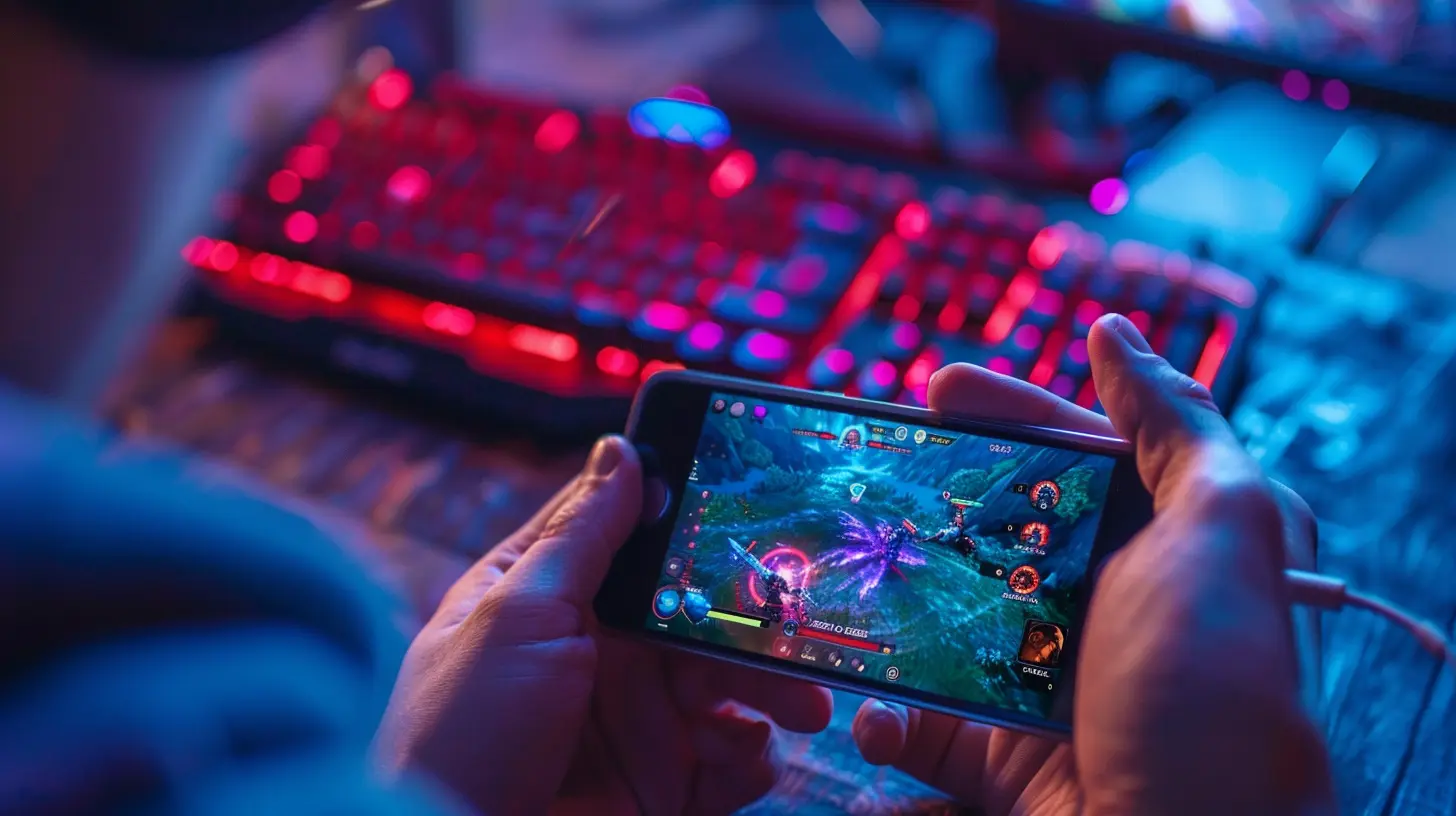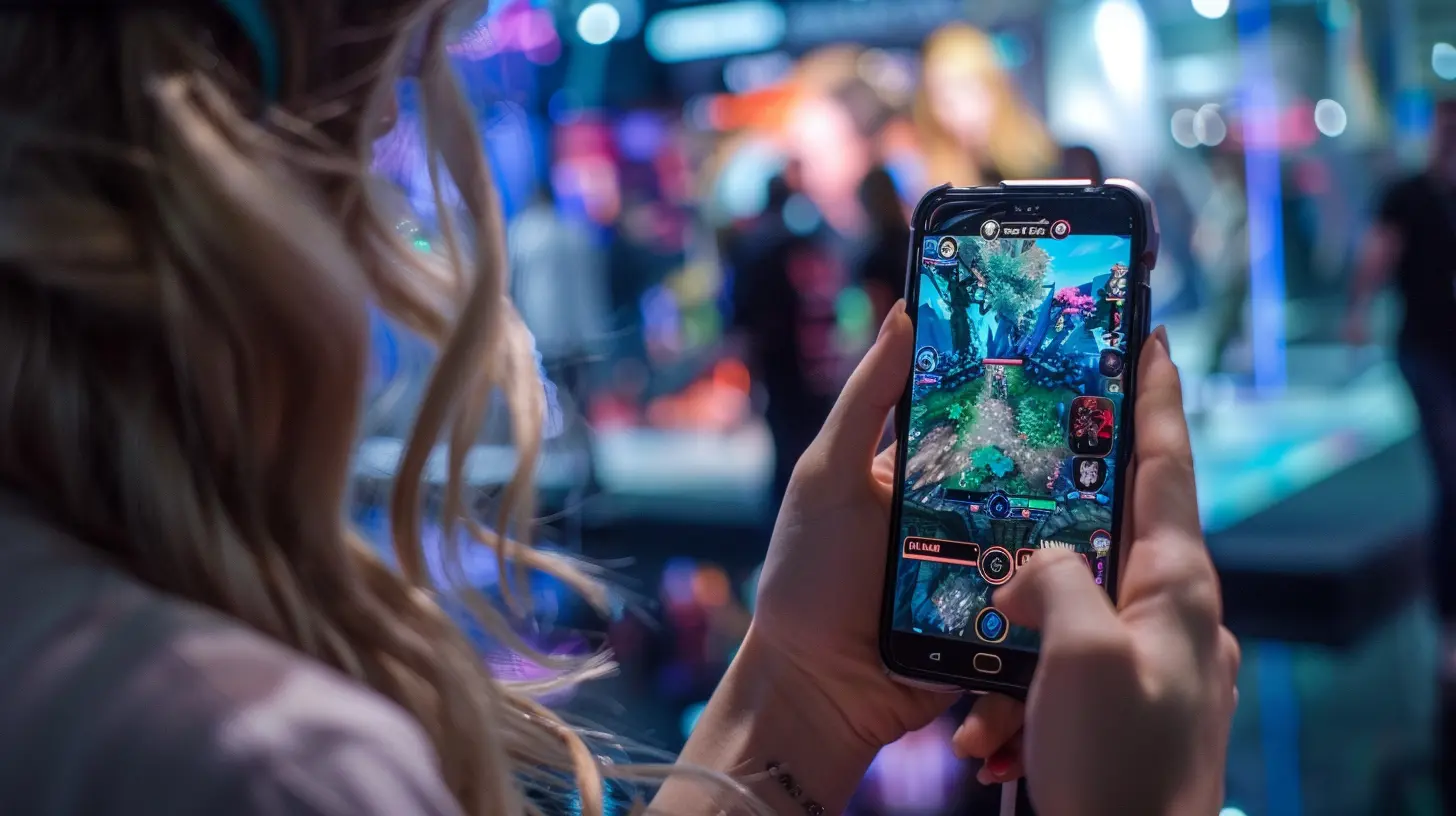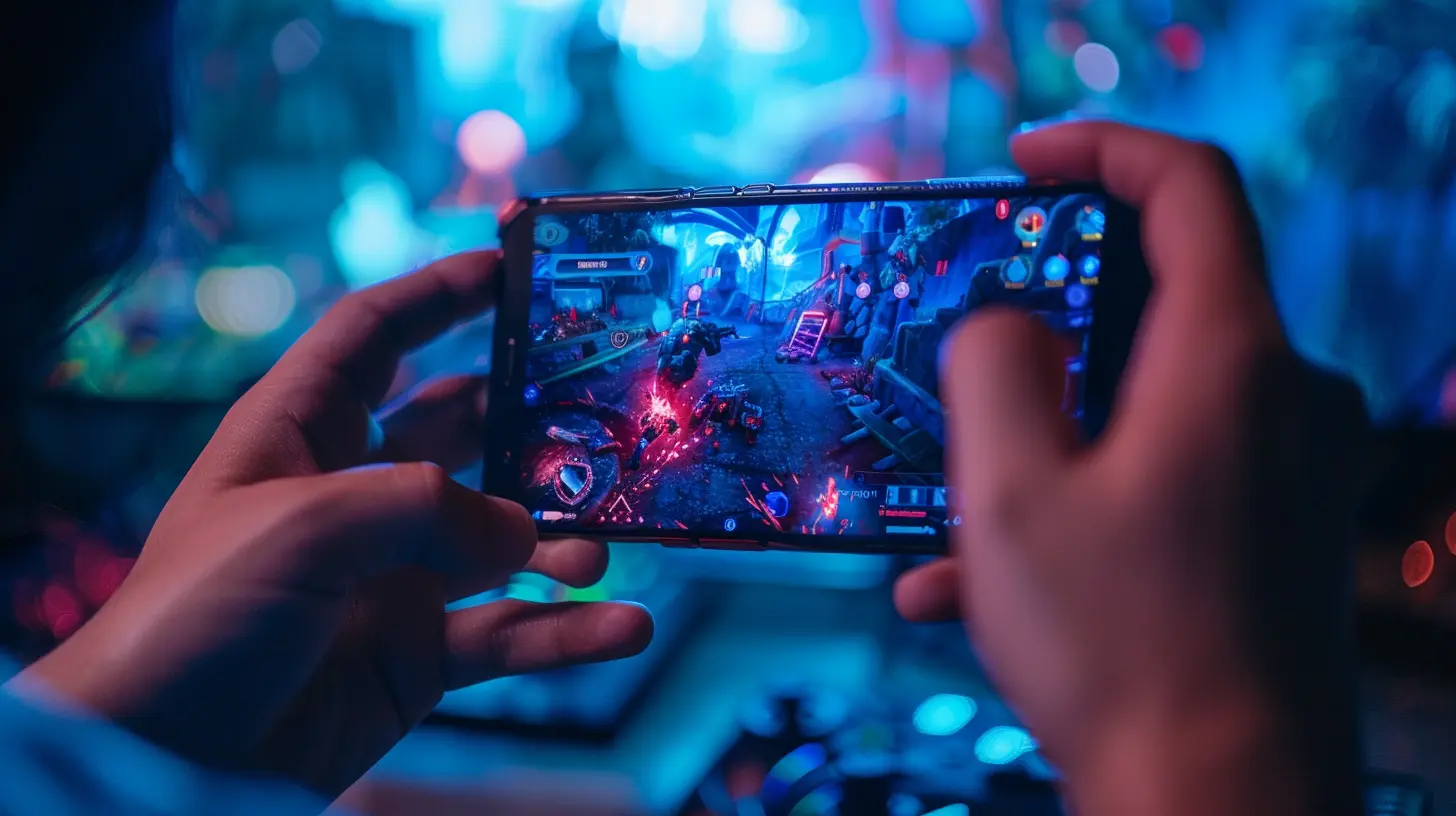How Mobile Games Are Entering the League Scene
13 November 2025
Over the last decade, mobile games have evolved from casual time-killers to competitive titles that rival traditional esports. This isn’t just about slingshotting birds into piggy fortresses anymore—no shade to Angry Birds, though. What we're witnessing is a seismic shift. Mobile games are stepping into the big leagues—and doing it with swagger.
In this deep dive, we’re unpacking how mobile games are entering the league scene, who’s driving the change, what challenges lie ahead, and why this shift is more than just a passing trend.
The Mobile Gaming Boom: More Than Candy Crush
Let’s set the stage. Mobile gaming isn’t new, but its growth over the past few years has been outrageous. Thanks to powerful smartphones, better graphics, and a surge of accessible internet globally, the mobile gaming market has exploded.In fact, mobile gaming now commands a bigger slice of the global gaming pie than PC and console combined. Yep, matched together. And with millions of players already engaged, some of the biggest mobile titles like PUBG Mobile, Mobile Legends: Bang Bang (MLBB), Call of Duty: Mobile, and Free Fire are naturally evolving into competitive experiences.
But how did we get from casual puzzle play to tournaments with six-figure prize pools?
Esports Evolution: The Rise of Mobile Leagues
To understand where mobile games are headed, we’ve got to look at where esports came from.Traditional esports leagues started with PC titles like StarCraft, Counter-Strike, and League of Legends. These games formed communities, which attracted sponsors, then viewers, and finally, fully backed tournaments. Mobile games are following that same blueprint—but on their own terms.
So… What’s Driving Mobile Esports?
There are a few key pieces to this puzzle:- Accessibility: Anyone with a phone can play. You don’t need a $2000 rig or a next-gen console. This opens the door for a much wider pool of talent, including in markets previously left out of high-level competitive gaming.
- Scalability: Mobile games scale fast. With regular updates, events, and fast matchmaking, developers can hook players and keep them engaged long-term.
- Community-First Approach: Many mobile games are laser-focused on community feedback, live interactions (you’ve seen the streamers), and regional competitions—fostering a vibrant player base.
The Big Players Making Big Moves
Let’s talk about the heavy hitters that are bringing structure and legitimacy to the mobile league scene.Mobile Legends: Bang Bang (MLBB)
This MOBA blew up in Southeast Asia and has been leading the charge in mobile esports with its Mobile Legends Professional League (MPL). Regions like Indonesia, the Philippines, and Malaysia have embraced it to the point where it’s a major part of esports culture.MPL is franchised, features proper teams, team houses, coaching staff, and yes—massive prize pools. Not to mention the fanbases are diehard.
PUBG Mobile and Free Fire
These battle royales have turned mobile phones into the go-to warzones. PUBG Mobile Global Championship (PMGC) and Free Fire World Series (FFWS) draw millions of viewers per match. National qualifiers, team sponsorships, and real salaries are all common now.The production value at these events? Unreal. We’re talking full-on stadiums, LED stages, live commentary, and team merchandising that would make some console leagues jealous.
Call of Duty: Mobile
COD:M carries the weight of its console and PC legacy. Its mobile variant has cemented itself as a legitimate mobile esport with tournaments like the COD Mobile World Championship. With Activision’s resources behind it, there's a push to make it a global esports staple.
Mobile Tournaments Are Getting Legit
Gone are the days where mobile competitions were nothing but random community scrims on Discord. Now, players earn spots in structured leagues through regional qualifiers, grind ranked ladders, and sign contracts like pros in other tech-based sports.Esports organizations are also hopping on the train. Huge names like Fnatic, Team Liquid, and Nova Esports are fielding mobile rosters. Brands such as Red Bull, Monster Energy, and even telecom giants are sponsoring these teams and events.
Why? Because viewership is off the charts—and growing.
The Viewer Surge: Watching Mobile Games Is a Thing Now
Here’s a curveball—many of the fans watching mobile esports don’t play the games competitively themselves. They just want to see the best of the best throw down.Streams on platforms like YouTube Gaming, Facebook Live Gaming, and even TikTok Live regularly push millions of views. In fact, the Free Fire World Series 2021 broke records with over 5.4 million peak concurrent viewers.
What’s wild? A lot of these numbers beat some of the more well-known PC tournaments. That’s not just growth—that’s domination in disguise.
Growth in Emerging Markets
A big reason for mobile’s push into the league scene lies in emerging markets: regions like Southeast Asia, South America, India, and the Middle East. In many of these places, mobile gaming is gaming.It’s cheaper. It’s more accessible. It’s social. And more importantly, it’s become an avenue for young talent to showcase skills on a global stage—changing their lives in the process.
Think of it this way: mobile esports are bridging the gap between gaming as a hobby and gaming as a career for an entire generation.
What’s Holding Mobile Esports Back?
Of course, it’s not all smooth sailing.Device Disparity
Let’s face it—there’s a big gap between a $100 budget phone and a $1000 flagship. Competitive balance can suffer when some players lag or can't match framerates. While tourney settings mitigate this by providing standardized gear, your average ladder still reflects this disparity.Cheating and Fair Play
Mobile games, like all online games, deal with hackers, lag-switchers, and exploiters. The mobile scene has had its fair share of scandals, and anti-cheat systems are still playing catch-up.Stigma and Skepticism
There’s still this lingering idea that “real gaming” happens on consoles or PCs. Mobile games often have to prove their legitimacy more than others. Even though the numbers speak for themselves, the cultural bias still lingers in some corners of the community.So Why Are Mobile Games Thriving in Competitive Leagues?
Let me put it like this: mobile esports is like street basketball turning into the NBA. It’s raw, it’s fast, and it’s insanely popular. It started with local legends, and now it’s pulling in global sponsorships.Here are a few reasons it’s working:
- Short game durations make tournaments easy to stream and manage.
- Cross-platform promotion helps games build audiences on YouTube, Instagram, TikTok, and Twitch.
- Low entry barriers mean more untapped talent—and faster discovery of rising stars.
- Diverse fanbase creates robust, loyal communities.
All of this adds up to one simple truth: mobile games aren’t just entering the league scene—they’re reshaping it.
What’s Next for Mobile Esports?
With 5G, cloud gaming, and better devices on the horizon, mobile esports is set to grow even more. Games like Wild Rift (League of Legends' mobile version) push the envelope further, blending the complexity of PC esports with the portability of phones.Expect more franchised leagues, collegiate tournaments, scholastic esports clubs, and maybe—just maybe—an Olympic showcase. I mean, never say never, right?
And with tech companies now racing to create gaming-focused phones and better accessories (like triggers, cooling systems, and controllers), the gameplay itself is becoming more refined and competitive-ready.
Conclusion: The Underdog That Became the Star
It’s safe to say mobile games have kicked in the door of the esports world. Once seen as knockoffs or “inferior,” they’re now dominating viewership charts, pulling massive prize pools, and opening the door for millions of aspiring gamers.Are there hurdles? Sure.
But remember when people thought Twitch was a niche? Or when League of Legends was “just a mod?" We’re watching history on repeat—but this time, it’s in the palm of your hand.
So yeah, mobile games are entering the league scene. Not quietly. Not awkwardly. But dripping in style, numbers, and global appeal.
And we’re here for it.
all images in this post were generated using AI tools
Category:
Gaming LeaguesAuthor:

Pascal Jennings
Discussion
rate this article
1 comments
Mira Ross
Absolutely thrilling to see mobile games making waves in the competitive league scene! This evolution not only broadens accessibility for gamers everywhere but also showcases creativity and innovation in game design. Exciting times ahead—let’s embrace this new era and celebrate the limitless potential of mobile gaming! Game on! 🎮✨
November 21, 2025 at 4:30 AM

Pascal Jennings
Thank you! I completely agree—mobile games are reshaping the competitive landscape and unlocking new opportunities for gamers and developers alike. Exciting times ahead! 🎮✨


